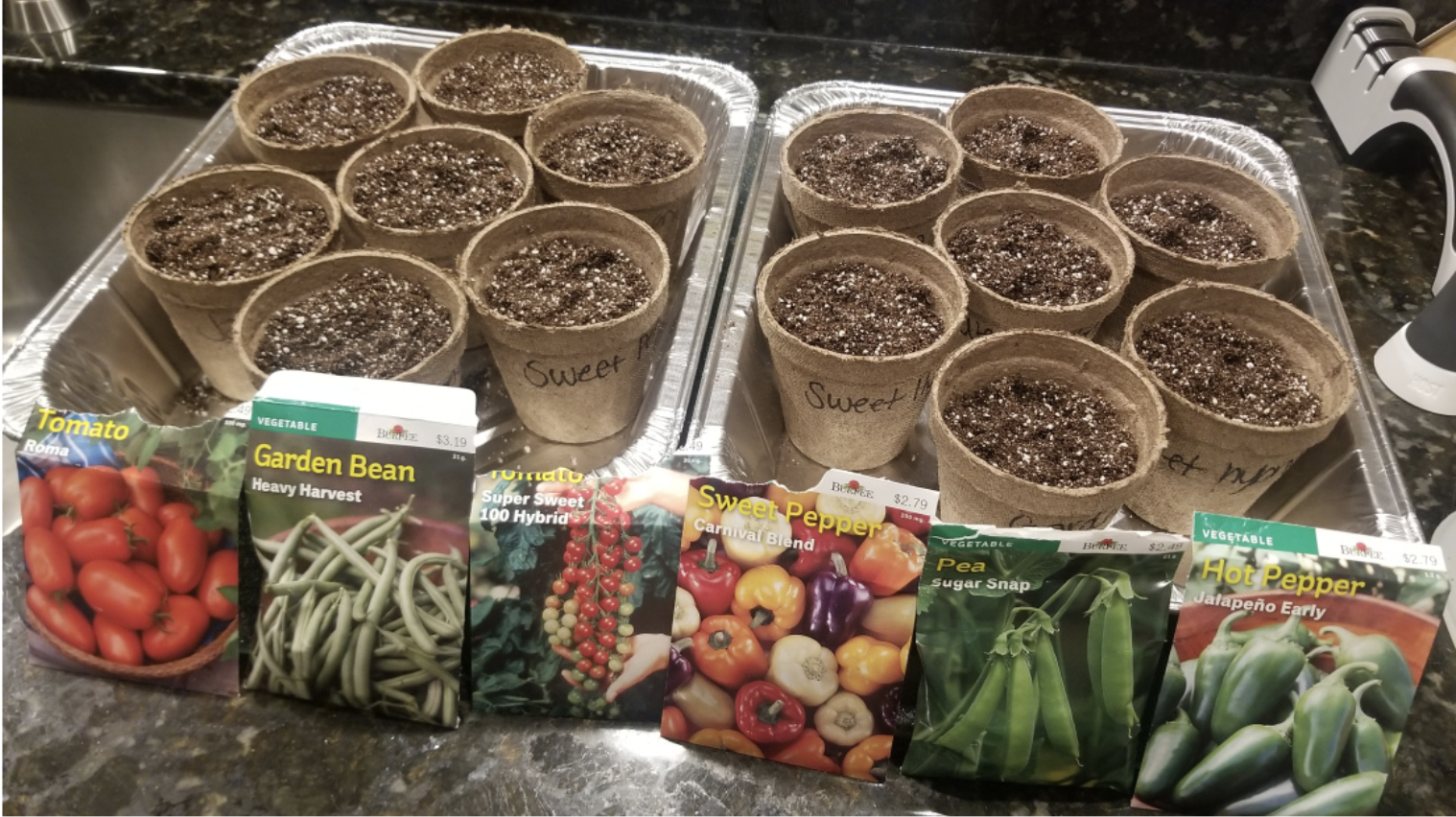Congregational Corner: Take on, Caring for Creation

By Rev. Jordan B. Davis (M.Div.‘14)
Congregational Corner
Every year, I watch the posts fly about what individuals are “giving up” for Lent. The crash diets and motivation to finally clean out the closets are worthy of being posted on social media, but I question if they really challenge us to understand the meaning of Lent and the sacrifice which we remember during Holy Week. As I pondered how I would approach this Lenten season, I decided that I wanted to turn things around in my own life and rather than give something up or give something away, I will take something on, just as Christ took on the sins of the world in his own death.
Over the next several weeks, I will strive to “take on” one new thing each week, in turn striving to take on more of the love and grace which Christ exhibited throughout his life, death, and resurrection. I hope that you will join me and share your own experiences!
Then God said, “Let us make humankind in our image, according to our likeness; and let them have dominion over the fish of the sea, and over the birds of the air, and over the cattle, and over all the wild animals of the earth, and over every creeping thing that creeps upon the earth.”
27So God created humankind in his image,
in the image of God he created them;
male and female he created them.
28God blessed them, and God said to them, “Be fruitful and multiply, and fill the earth and subdue it; and have dominion over the fish of the sea and over the birds of the air and over every living thing that moves upon the earth.”
Genesis 1: 26-28 NRSV
Several years ago, I accidentally started a new Lenten practice. One beautiful Sunday afternoon, I planted the seeds for my first garden at our new home. Over the next six weeks, I watched over my seeds sitting in the dining room and celebrated every change I saw. On Easter, they were finally ready to move outside where they would eventually become the most productive garden I have had. Since then, I have tried to stay as close to this schedule as possible, even though I have yet to have the “perfect transplant” on Easter that the first garden had.
Gardening can be such a peaceful practice. There is something about working with the soil and excitedly checking the growth of the plant every day that both matches and contrasts so beautifully with the season of Lent. Just as we walk with Christ and anticipate his arrest, crucifixion, and resurrection every year, a gardener first plants the seed and then watches with anticipation for that seed to root, sprout, flower, and finally produce. There is an element of grief when sprouts die and is a sense of great excitement and praise those tiny sprouts are successfully transplanted into the garden soil where a new life will take hold and flourish.
This year, I think it is a wonderful coincidence that we celebrate the new, risen life of Christ the day before Earth Day. As those entrusted with the care of God’s creation, we are becoming more and more aware of the damage and slow death that is taking place throughout this creation. Reports and predictions about “how long” we have left with the natural resources available are grim and people all over are trying to figure out what to do to save creation. We are challenged with not only maintaining the resources we do have, but finding ways to recover what has been lost through our collective carelessness throughout all of God’s creation.
Just as we learn to love God by loving the way God has created us, we also learn to love God through working with and nurturing God’s creation. For some, that might be done through gardening while others might invest their time in cleanup efforts. How can you take on caring for creation this Lent? Maybe you are already taking several steps using “green” products and limiting waste. Maybe you are so overwhelmed you do not know where to begin. I have found this to be a great place to start as I look for my own ideas for caring for God’s creation and ways to teach about caring for creation.
In the beginning, you created the world and said that it was good.
In the midst of our lives, you came and taught us of your love and grace
through the lens of that which was good.
We have neglected that goodness for our own,
forgetting that it is dust that we are made of.
We now turn our hearts and our hands back to that dust, back to the soil.
We dust off the good and make room for new sprouts
so that we might see your love shine around us
in its fullest beauty once more.
Amen.
Alumna Jordan B. Davis is associate pastor for youth and young adults at Kirk of Kildaire Presbyterian Church in Cary, North Carolina, and editor of Congregational Corner.
Photo by freestocks.org from Pexels









